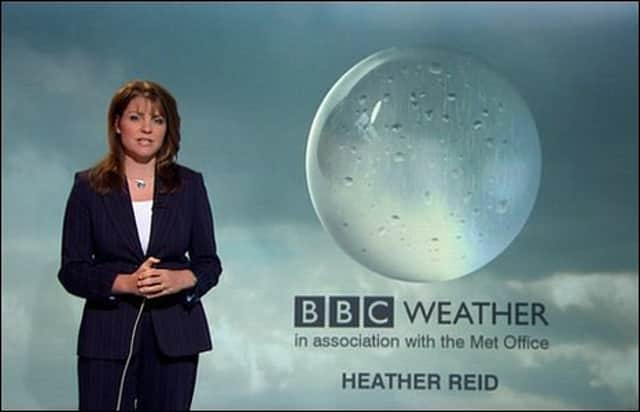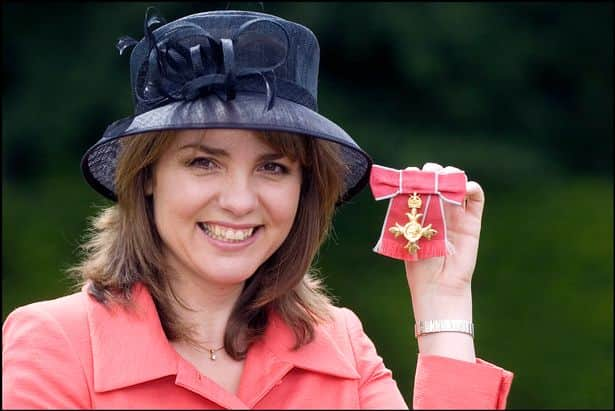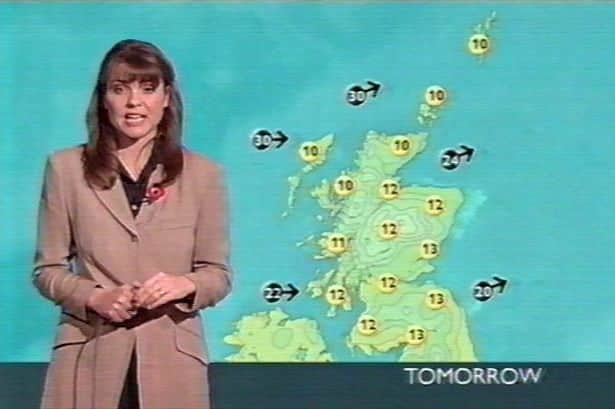Heather Reid shares optimism over future of science education


‘Heather the Weather’ spent 15 years greeting the nation with her trademark “Hello there” as Reporting Scotland’s effervescent meteorologist.
Between May 1994 and December 2009, Heather Reid was the BBC’s senior weather forecaster and an alumna of cultural icons and household names.
Advertisement
Hide AdAdvertisement
Hide AdOff-camera, she was building a reputation as an esteemed physicist, educational consultant and has since become heavily involved in promoting science through education.


Heather was born in Paisley in 1969, and proceeded to study at Edinburgh University, leaving four years later with an honours degree in Physics. She then proceeded to study for her Masters degree in Image Processing at the university’s Meteorology department.
"Our family was quite outdoors-y," she says, "and my dad was into how everything works and links together. I suppose from a really young age he was a major influence. Then I had a good physics teacher at school - Mr Weir - who really opened my eyes to the area of science - physics - that I was most interested in."
A science education is a rare trait in the media, but Heather admits her 15-year stint on Reporting Scotland came about entirely be accident.
"Once I’d done my degree, I then did my masters in satellite image processing that led to a job in the MET Office, to initially work in satellite research," she says, before explaining it was her new employer's idea she try out for a forecasting position at the BBC.


"I said I’d give it six months at my BBC Scotland screen test and I ended up standing there for almost 16 years so it was never part of the grand plan to be part of the media. I suppose that’s how a lot of people needed up in the careers they’re in: in the right place at the right time and you end up enjoying it."
After leaving BBC Scotland in 2009, Heather saw the Curriculum for Excellence as an opportunity to start afresh. She's now a freelance science education consultant and runs courses for primary teachers who don't come from a science background and adult learners entering science for the first time.
Heather accepted an OBE on Jan 1 2006
Heather enjoys the educational aspect of her new role: "As someone who’s parents both taught and thought every seriously about teaching, I do really enjoy the whole environment of education, the people I work with and the job satisfaction that it brings.


Advertisement
Hide AdAdvertisement
Hide Ad"I suppose the raison d’être is to raise awareness of the importance of science and the contribution science makes to our economy, our society and our health and wellbeing."
Despite the onslaught of social media, celebrity and the worrying prospect of scientific policy u-turns in America, Heather remains optimistic about the mission young Scots have ahead of them.
"I feel very hopeful and positive about young people and their involvement and appreciation of science," she says.
"I think they're are more aware of the impact of climate change than my generation or my parent’s generation. I think they’re the most clued up when it comes to some of the biggest global issues - whether it’s feeding a growing population, climate change or supplying clean water - on all these difficult issues they’re incredibly well-informed and knowledgable.


"I think Curriculum for Excellence helps there when it comes to developing global citizens and interdisciplinary learning."
She believes young people are better at making connections between STEM (science, technology, engineering and mathematics) subjects and despite being privately concerned about the potential ideology and policy that could take shape in America, she trusts that the rest of the world and the influence we can wield, is just as important.
"There are also some really good role models out there when it comes to science," she says, "whether it’s Brian Cox or indeed my ultimate role model, Sir David Attenborough.
"There’s lots of more women getting involved in science - we’ve had female president of both Royal Society of Chemistry and the Institute of Physics in the last 5-10 years so there is reason to be optimistic.
Heather was a familiar face on Reporting Scotland
Advertisement
Hide AdAdvertisement
Hide Ad"As long as we can ensure that knowledge is kept to the forefront and that young people still have depths of knowledge within the subjects they want to take forward - either through careers or college or university - and they’re not sacrificing some of that depth of knowledge for too much discussion, then I think we can get that balance right then that’s the ideal and that’s what we’re all striving for."
Observing the international education picture, she admits she is sometimes concerned with the degree of equity present in our education system, which is in sharp contrast to other nations.
"I sometimes fear we’re so keen that our young people are so well-rounded that we sometimes don’t stress enough about the importance of the STEM subjects when it comes to our future economy, our future society and our health and wellbeing.
"I would really like to see science as a core subject and I would like to see a degree of prioritisation in terms of links to careers and links to informed decision making for young people as they progress through education.
"There are examples of this going on around Europe, Asia and the rest of the world. Education systems everywhere are really recognising the importance of STEM subjects and I think it’s very important that we do the same."